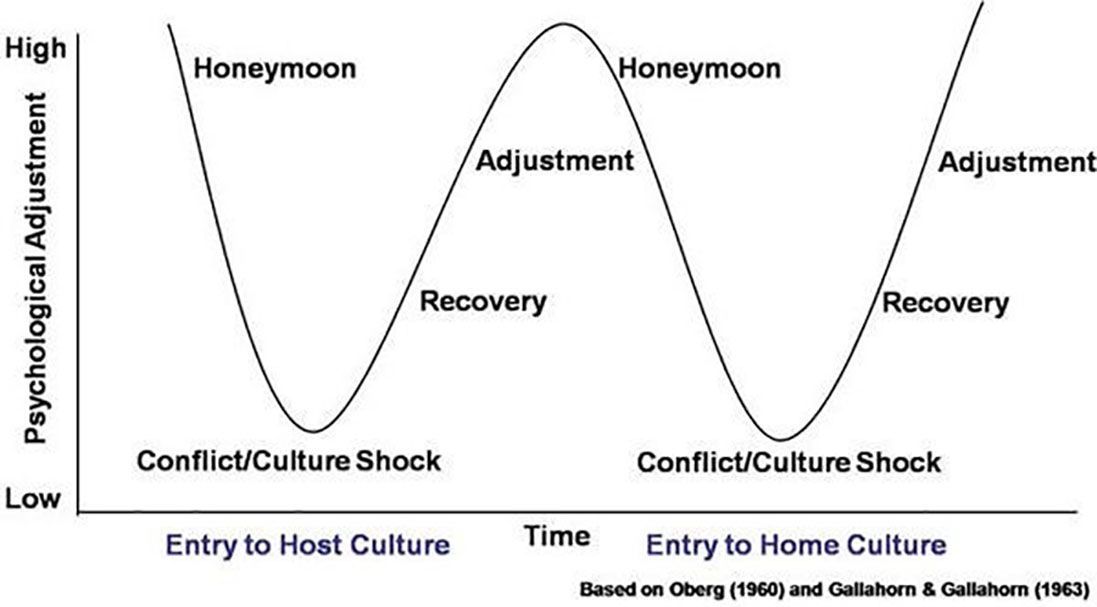Transforming Homesickness into a New Home
Transforming Homesickness into a New Home
Wednesday afternoon: I finish my lecture session and walk back to my apartment, fellow expats beside me. We chat about our upcoming plans visiting new countries and areas within Ireland. The conversation has a zing as we share our excitement of exploration. The door closes behind me and silence of my room began to feel louder than the conversation. My phone is silent; no texts from my friends or family back home in California. I check Instagram, which reveals that my friends were out hitting the town back home and my mother is was busy treating my family to dinner. They’re over there and I’m over here, alone.
Suddenly I realize, I’m not alone and I have so many methods to turn this experience into a positive one so I make some hot chocolate, text my best friend, put on the fuzzy socks, and pick up the book I’ve been wanting read for the last year, but never had time for…
Prior to embarking on our journey to Ireland, my cohort and I were presented with a graph detailing the “typical” experience during a semester or year abroad (shown below). We were told that we would go through a wave of emotions, beginning with a sort of euphoria upon initial arrival. Everything is exciting and interesting! New beers, new food, new friends, new smells and sights...Ireland is a new land to explore that is just excited to meet us. We were warned that as this “honeymoon” phase wore off, we would enter the homesickness phase. A time when all the new sights and smells felt not as comforting as those back home. We would miss the mundane and the routine, including ranch dressing for our fries and the fact that our produce lasted more than a few days in the fridge. After some time coping, we were then told that we would slowly rise out of the hole and fall in love with out new home.
The simplicity of a graph does not explain everything, of course. Each individual living away from home has their own unique experiences. The intersectional elements of each individual’s identity determines the outcomes. For example, those who are accustomed to more distance and infrequent communication with family could thrive living away from home, whereas others, such as myself, who are more accustomed to frequent contact could need time to adjust.
The experience of studying abroad is not only one of outward exploration, but personal development as well. During our time away, we are increasing our self-sufficiency and confidence, learning about our needs and necessities in order to maintain happiness, and broadening perspectives as we engage with multiple cultures. Combating homesickness is just one of the challenges presented to many away from home and it serves as a crucial part of self-growth.
Here are a few general tips to ease the experience of homesickness abroad
1. Maintain Routine
Identify rituals in your daily life and remember to pack them next to the socks. If you needed that morning workout to kick-start your day at home, bring it with you! Consider seeking a gym membership (CIEE Dublin Students have a membership to the gym at DCU) or downloading a helpful phone app for direction. Did you talk about your day over dinner with your roommates? Try proposing this tradition to your new roommates, jotting down your thoughts in a journal, or sending a recap to a friend back home. Maintaining routine is crucial to maintain normalcy while abroad and is easy to implement. For more complex habits, consider adjusting them. If you always played the trumpet before bed, maybe help your roommates out and play before lunch or with a jazz group.
2. Maintain Contact with a Support Network
Although home is far away and time differences make communication difficult, arranging for some form of regular contact back home can be incredibly beneficial. Consider asking a few of the people that make you happiest if they are up to talking every once and awhile. Contact does not have to be a large undertaking either! Send a picture of something that reminds you of them or a quick text during the day. Arrange for a phone call when it works out and hear about their days just as much as they hear about yours. If ever you feel disconnected from home, don’t be afraid to reach out to your support network and maybe bring back a little souvenir for them.
3. Indulge in the Creature Comforts
Studying abroad can be expensive and every penny saved for another excursion, however, a few of the comforting things should be considered an investment. Identify which areas of your life require lower maintenance and which require higher. For instance, I’m not one to need several different outfits, therefore, I avoid purchasing too many new clothes. I am, however, a little higher maintenance in the body-care and coffee departments so I have allowed myself to buy a new face mask, some essential oils, lotion, a French press, and some high-end coffee. Save money in the areas less attended to and invest (within reason) in the areas that are important to your happiness.
4. Establish a Sanctuary
Back home, you likely have posters on the walls, a music player, television, candles burning, and whatever else makes home feel like home. These elements can also be used to make a new home away from home. Consider packing a few small items that make you happy to put up around your new room and seeking out some low-cost or disposable decor to arrange. These could include hand-made drawings (which is a great form of meditation by the way), interesting postcards or pictures from different sites, fresh flowers, a cool cup from Dealz, or a few souvenirs your find along the way. Make your room your sanctuary where everything on the corkboard makes you smile (so maybe no homework pinned up there.) The second aspect to this is to take care of your sanctuary. It has been long told that a messy space can create a messy mind or vice-versa. Try your best to keep things tidy and take out the trash so that your space is a place of rest rather than stress.
5. Find your Niche
In this case, niche not only refers to a place of belonging, but people as well. It takes time to make friends and develop social circles, for some longer than others, but remain open to possibilities and challenge your comfort zone a little. Introducing yourself to strangers and signing up for a few societies could be the doorway to new friendships and potentially, a crew to adventure with. Getting to know your fellow cohort is also a wonderful first step to making new friends and developing a supportive circle, however, do not limit yourself to fellow Americans or International Students. Get to know some locals! This being said, recognize what serves you and how to utilize social practices to your benefit. Introverted individuals are those that gain energy by having some alone time in order to later socialize to their fullest. Extroverted individuals gain their energy from the presence of others and therefore desire minimal alone time and need social interaction to thrive. Recognize where you draw your energies from and honor those needs so that you can function your best. (P.S. If you are on the introverted side, like me, remember that it is OK to stay in when everyone goes out to the pub, however beware only making friends with yourself and make sure to get out when you can!)
6. It’s OK to Feel Homesick
If you notice feelings of homesickness, do not beat yourself. It is normal and healthy to miss home. Consider expressing these feelings in a healthy way by increasing self-care, contact with the support network, or talking to a fellow study abroad student. You are not the only one to long for home and will likely find that every student studying abroad feels it in different ways and degrees. Give yourself permission to treat yourself extra special when these feelings come up and do your best to not bury them underneath more travel plans. Do not push feelings aside, because they will return in fuller force. If harmful thoughts or behaviors begin to occur, speak with a professional or your onsite program advisors. Healthy and happy memories are the most important souvenir!
Related Posts

EAT, DRINK, EXPLORE: DUBLIN
BEST FOOD TO EAT IN DUBLIN A Full Irish is no joke. When you’ve got a long day ahead of you, start the day with a Full Irish and you’ll... keep reading

Ireland Traditions and Culture You Should Know
Known for its lush landscapes and rich history, The Emerald Isle offers a unique blend of Irish traditions in Ireland that captivate visitors and locals alike. From its ancient Gaelic... keep reading

What Does Craic Mean? Your Guide to Irish Slang
For those not from Ireland , the frequent use of “craic” by the Irish can be a little confusing. We get it. The concept can be a mix of a... keep reading
